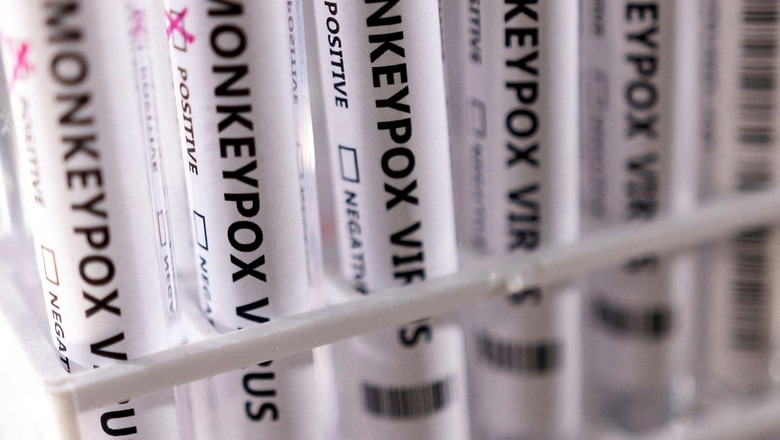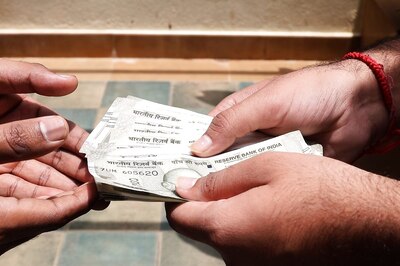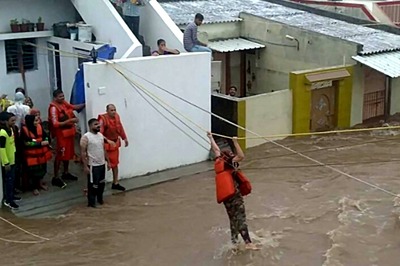
views
It’s the newest health scare in town and no, none of us were prepared for yet another virus just as Covid-19 was making a quiet — hopefully — exit from across the globe. According to the World Health Organization, there are now 131 confirmed cases of monkeypox, and a further 106 suspected cases, in 19 countries. Experts describe the event as “random” but “containable” and was likely sparked initially by sexual activity at recent raves in Spain and Belgium.
While it is still too early to talk about a monkeypox epidemic, despite the increase in reported cases recently, the emergence of the phenomenon should act as an alert, according to Antoine Flahault, Director of the Institute of Global Health at the University of Geneva. However, amid the shadow of coronavirus, countries are in no mood to take it easy this time around.
In news that could bring some relief, doctors and experts opine that because the monkeypox virus is closely related to the virus that causes smallpox, the smallpox vaccine can protect people from getting monkeypox. Past data from Africa suggests that the smallpox vaccine is at least 85 per cent effective in preventing monkeypox.
Made by the Danish company Bavarian Nordic and named Jynneos, the vaccine uses a live version of the smallpox virus that has been engineered so that it cannot replicate in the body or cause infection, but can still activate the immune system to mount defenses against both the smallpox and monkeypox viruses to protect people from getting infected. It was approved by the US Food and Drug Administration (FDA) in 2019 to protect against both smallpox and monkeypox.
Unlike with the Covid-19 vaccines, immunising people against monkeypox likely won’t involve a mass campaign, because monkeypox isn’t as contagious or as easily spread as SARS-CoV-2.
What about India?
While India has not reported any cases of monkeypox so far, states have upped their vigil. The Brihanmumbai Municipal Corporation (BMC) has kept a 28-bed ward ready at the Kasturba Hospital for the isolation of suspected patients. The corporation said airport authorities were screening passengers coming from endemic and non-endemic countries that had reported outbreaks.
The National Centre for Disease Control (NCDC) has instructed states and Union territories to move suspected cases to an isolation centres and keep them until all lesions have resolved and a fresh layer of skin has formed or until the treating physician decides to end isolation.
Health experts believe as new cases are being detected in various countries, the possibility of the disease occurring in India cannot be ruled out. However, they have advised people not to panic.
“Everything should be taken seriously. And we should keep a guard but at the same time, there is no need to get panic. We need to study how it is evolving, and how many people are getting affected. Fortunately, it is not that severe as smallpox,” Dr Ishwar Gilada, infectious diseases expert and consultant for HIV/STDs, said to news agency ANI.
The smallpox connection
The 1974 smallpox epidemic of India was one of the worst smallpox epidemics of the 20th century. Over 15,000 people contracted smallpox and died from the disease between January and May 1974. Most of the deaths occurred in Bihar, Odisha and West Bengal. India reported 61,482 cases of smallpox, over 86% of the world’s smallpox cases in 1974. Officially by 1975, the country eradicated the disease.
Monkeypox is a disease in the same family as smallpox and symptoms include a distinct bumpy rash, a fever, sore muscles and a headache. It is less deadly than smallpox, but experts are worried about the unusual spread of the disease beyond Africa where it usually circulates.
The main difference between monkeypox and smallpox is that apart from the flu like symptoms, monkeypox causes enlargement of lymph nodes or glands in the body.
After doctors hailed the smallpox vaccine as a potent tool against monkeypox, there are talks that India may be better equipped to deal with an outbreak, if any, because of its experience with smallpox and immunization against it as children.
While it’s too early to gauge the impact of the virus and its possible spread, the Centre and states are maintaining a strict vigil to ensure cases remain nil.
Read all the Latest India News here




















Comments
0 comment